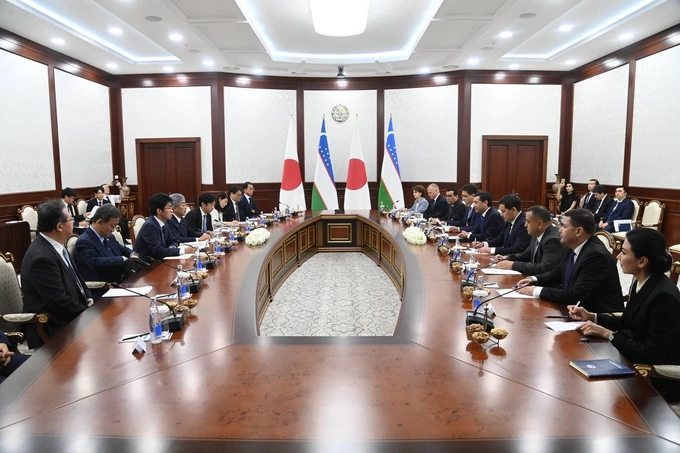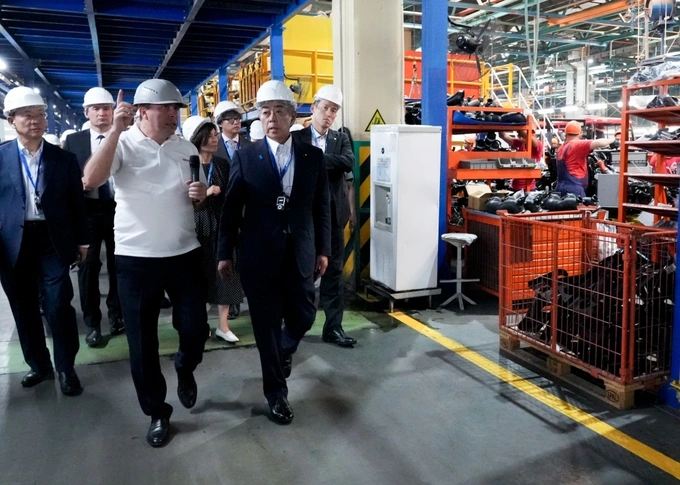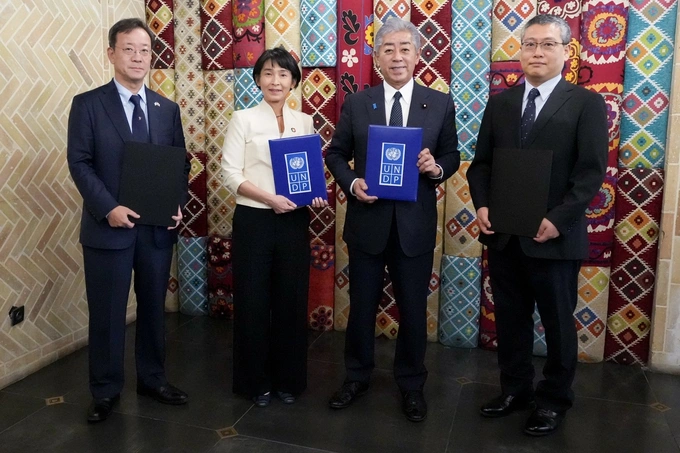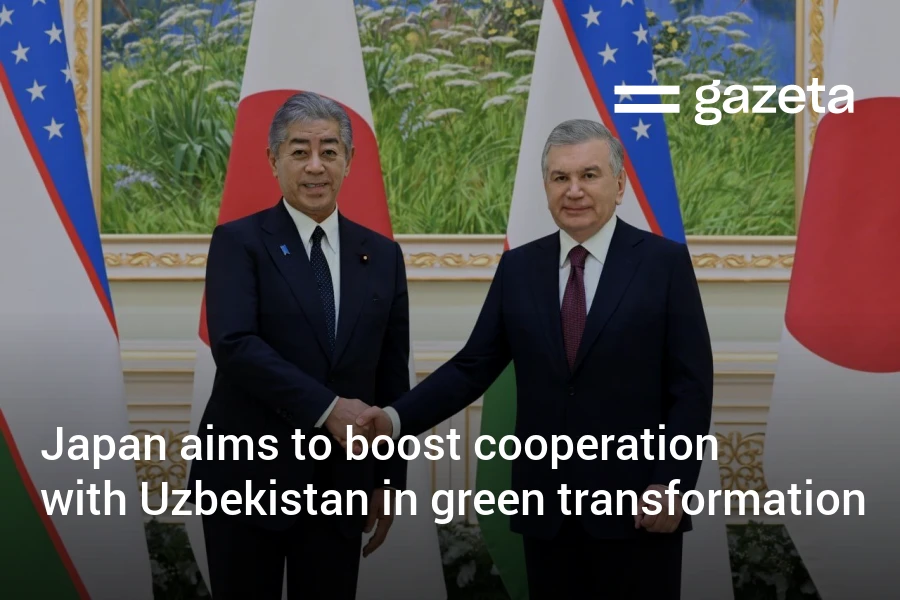Foreign minister of Japan Takeshi Iwaya paid a visit to Uzbekistan on 26−27 August. This marked the first visit to Central Asia by Japan’s top diplomat in the past three years.
During the trip, he met with president Shavkat Mirziyoyev, took part in the first strategic dialogue at the foreign ministers’ level with minister Bakhtiyor Saidov and visited the city of Samarkand.
At a press briefing in Tashkent, attended by a Gazeta correspondent, Japanese Foreign Ministry press secretary Kitamura Toshihiro spoke about the results of the visit, the priorities of bilateral relations and cases of visa overstays by Uzbekistanis.
Strengthening bilateral relations
“We strongly believe that Uzbekistan is a very important country, it’s the largest country in the region in terms of population and a very responsible regional power,” Toshihiro said.
The spokesman noted that Uzbekistan and Japan had upgraded the dialogue between foreign ministers to a strategic level and had held its first round, signing a joint communique.
 Photo: Foreign Ministry of Uzbekistan.
Photo: Foreign Ministry of Uzbekistan.
“We would like to strengthen our cooperation in the field of green transformation, including decarbonization, digitalization and human resource development. The areas that benefit the sustainable development” the press secretary noted.
He pointed at the gradual increase of the number of Japanese companies in Uzbekistan and noted that investment environment in the country was becoming company-friendly due to the initiatives of the president, especially reforms in the economy and society.
“We hope that the president [of Uzbekistan] will continue the orientation of economic and social reform and that will lead to further investment from Japanese companies in this region. We’d like to focus on the positive aspects or the possible areas of cooperation in order to promote the cooperation between two sides,” Kitamura Toshihiro said.
He admitted that the volume of investment by the Japanese companies was relatively small compared to other countries, in particular China or Russia.
“Through economic cooperation Japan can invest into the human resource development in the country as it is one of the priority and strengths of Japanese companies,” the diplomat stressed.
The spokesman noted that at the SamAuto plant in Samarkand region invested in by Japanese automaker Isuzu, over the years of the plant’s operation local workers have come to play an important role in production.
“Such kind of transfer of knowledge or technology to Uzbekistan people can be possible and that will continue in the future as well,” he said.

The press secretary also noted that the protectionist trends observed in many regions of the world recently created barriers to maintaining an open and multilateral system of international trade.
“Our neighboring country, China, is trying to use their critical minerals in order to force their narrative onto other countries. It is quite important for Japan, not only for Japan but also for other parts of the world, to establish a resilient supply chain of critical minerals and other resources. Uzbekistan is full of natural resources, so there is much potential for a Japanese company to work with the Uzbek government and companies,” said the spokesman.
He stated that, based on the adopted communique between the foreign ministers, the parties will identify and explore the future possibilities of cooperation.
Grant assistance
On 27 August, the parties signed a grant agreement on sending Uzbekistan’s civil servants to study at Japanese universities. For this project, the government of Japan allocated $2.8 million under its regular grant aid program.
In recent years, more than 430 public servants from Uzbekistan received training in Japan thanks to this program.
“The reason why we started this grant assistance program on human development in public sector is that after [attaining independence] you need to change your mind from socialist or communist regime to market oriented. To realize such shift or transformation, we believe that Uzbek people can equip themselves with capacities to establish policies which are beneficial for the transition to the market economy. That is why we have focused on this as the first step to train or provide capacity training to public servants of this country,” the spokesman said.
Kitamura Toshihiro added that today Japan still focused on developing human capital in the private sector and cited the Uzbekistan-Japan Human Resource Development Center as an example.
During the visit, it was reported that the Japanese government would provide a $3.3 million grant to support Afghanistani migrants and other vulnerable groups in the southern Surkhandarya region of Uzbekistan.

“Assisting, helping the vulnerable people is one of the priorities of the president of Uzbekistan and this program assistance is in line with his initiative. In Surkhandarya, there are many refugees from Afghanistan, and we are going to provide vocational training, not only the Afghanistani refugee but also the vulnerable people, such as women, children, youth,” he said.
Visa overstays
Toshihiro noted that there were cases of visa overstays by citizens of Uzbekistan.
“We are very happy to see that many people are studying Japanese language and especially younger generation are more interested in Japan. Currently we are accepting the people from Uzbekistan under the existing visa framework,” he stressed.
“Some of them violate the regulations imposed by the Japanese government, staying in Japan after expiring the visas. One of the reasons for that is that some broker is working in order to facilitate such a clandestine exchange of people. We have already had the discussion with Uzbekistan government in this regard and they are very cooperative and the situation is improving,” the Foreign Ministry representative emphasized.
At the moment, Japanese side has no concrete plan to change or soften this regulation, he added.


AloJapan.com